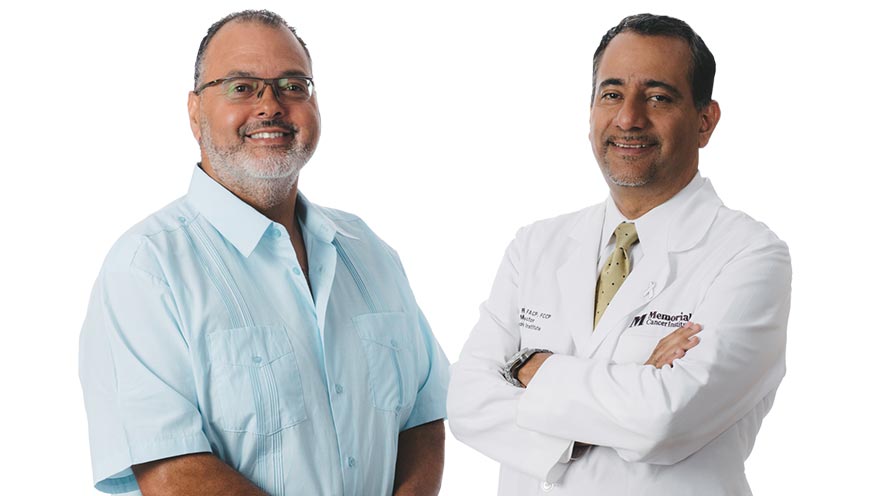One of the largest cancer centers in the state of Florida, Memorial Cancer Institute treats more than 4,300 new cancer patients every year, providing them with innovative technology and a team of more than 300 medical and support professionals who are dedicated to offering world-class cancer care.
Highly Coordinated, Quality Oncology Care
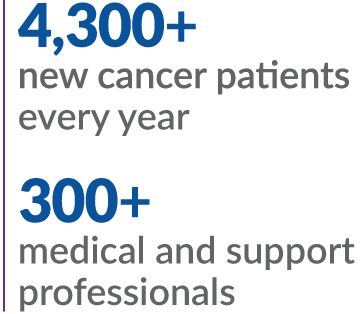
In the last year, Memorial Cancer Institute implemented the Oncology Care Model, a Medicare initiative that offers enhanced services to Medicare beneficiaries and aims to provide higher quality, more highly coordinated oncology care.
This new platform of care allows Memorial Cancer Institute patients to receive more care at the Institute and spend less time in urgent or emergent care. The Memorial Cancer Institute team believes it can help a larger population of patients stay well and stay out of the Emergency Room with new clinical measures. The Institute has laid the groundwork and is developing new workflows and operations in order to begin achieving higher value of the care provided. Various clinical concerns including pain documentation and pain management, screening for depression and advanced care planning have been addressed for the benefit of families.
The Oncology Care Model creates the platform for Memorial Cancer Institute practices to provide beneficiaries with financial estimates in the case of those who may have balances, and offers improved clinical communication via navigation and provider discussions.
“I believe the Oncology Care Model is the future of healthcare delivery and an innovative payment system for practitioners treating patients with cancer. With a focus on quality care, smarter spending, and improving patients’ health, Memorial Cancer Institute is on the cutting edge of improving patient care in a cost-effective manner”Maggie Wiegandt
Vice President, Memorial Cancer Institute
Oral Chemotherapy Counseling Clinic
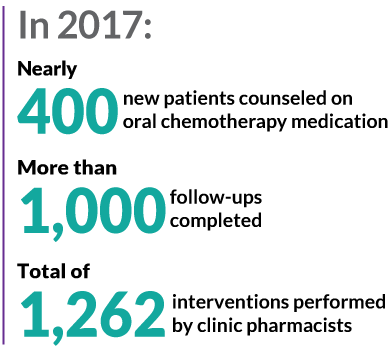
Memorial Cancer Institute’s Oral Chemotherapy Counseling Clinic was launched in 2017 to serve patients on oral chemotherapy, biotherapy and immunotherapies. The clinic services include initial education when starting treatment and follow-up monitoring and counseling. Prior to educating patients, pharmacists review prescriptions and perform drug-drug interaction checks. Pharmacists also monitor lab results to identify if any modifications need to be made based on patient renal, hepatic or other existing laboratory abnormality and discuss with the physician if needed.
During initial education, pharmacists provide an extensive review of how to take the medication, safety precautions, home medication review, drug-drug and drug-food interaction checking, pregnancy and fertility information, Risk Evaluation Mitigation Strategy program assistance, additional monitoring requirements, and ensuring chemotherapy consent and electronic health record treatment plan initiation, consistent with Quality Oncology Practice Initiative and specialty pharmacy accreditation requirements. Follow-up sessions with the pharmacist may include refill assistance, recommendations for laboratory or other monitoring, side effect management, dose adjustments or treatment plan modifications, medication clarification or reconciliation, and other education based on the patient’s needs.
First Year Statistics:
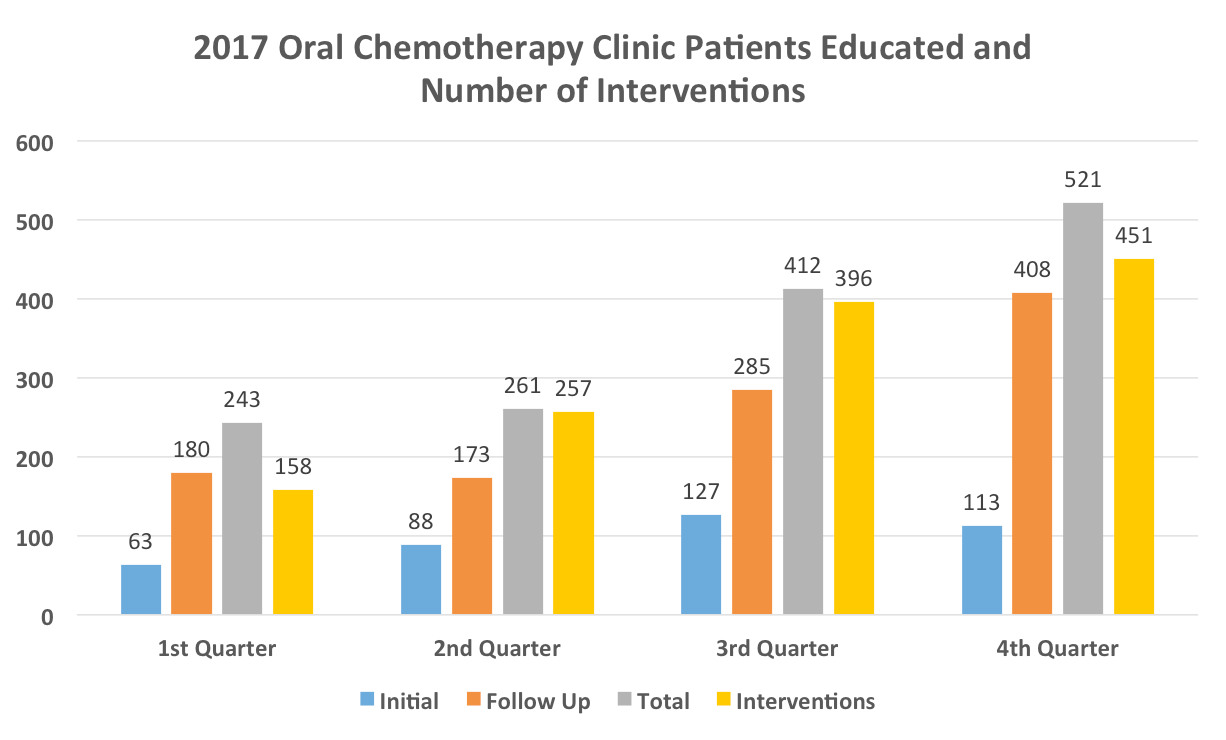
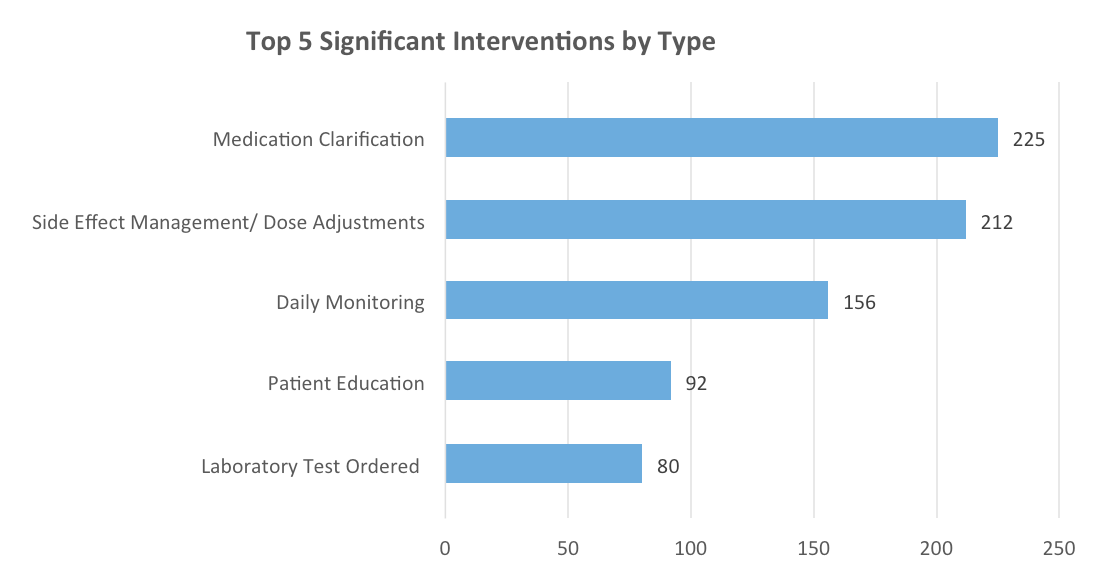
“One of the biggest benefits of coming to Memorial for oral chemotherapy is that it is a one-stop shop. From the moment a prescription is sent by the provider, an entire team of specialists is ready to assist with the needs of the patient, from ‘How am I going to pay for this medication?’ to ‘How do I take the medication?’”Frank Gentile, PharmD
Clinical Specialist, Hematology/Oncology
Moffitt Malignant Hematology and Cellular Therapy Program
The Moffitt Malignant Hematology and Cellular Therapy Program (MHCT), a clinical partnership between Moffitt Cancer Center and Memorial Healthcare System, allows blood cancer patients to receive high quality care close to home. Based at Memorial Hospital West, the program performs both allogenic and autologous transplants, and its methods have been recognized for exceeding established standards in patient care and laboratory practices.
In April, the facility received three-year accreditation by the Foundation for the Accreditation of Cellular Therapy (FACT) for compliance with the FACT-Joint Accreditation Committee of ISCT-EBMT International Standards for Hematopoietic Cellular Therapy. To qualify for accreditation, a facility has to meet or exceed cellular therapy standards, submit to a rigorous approval process and pass an on-site inspection.
As of May 1, the 100-day survival rate for patients transplanted at the Moffitt MHCT program at Memorial Hospital West was 100 percent.
“The ability to get experienced BMT care locally is the reason to be seen in the Moffitt Malignant Hematology and Cellular Therapy Program at Memorial Healthcare System.”Hugo Fernández, MD
Medical Director, Malignant Hematology and Cellular Therapy Program




